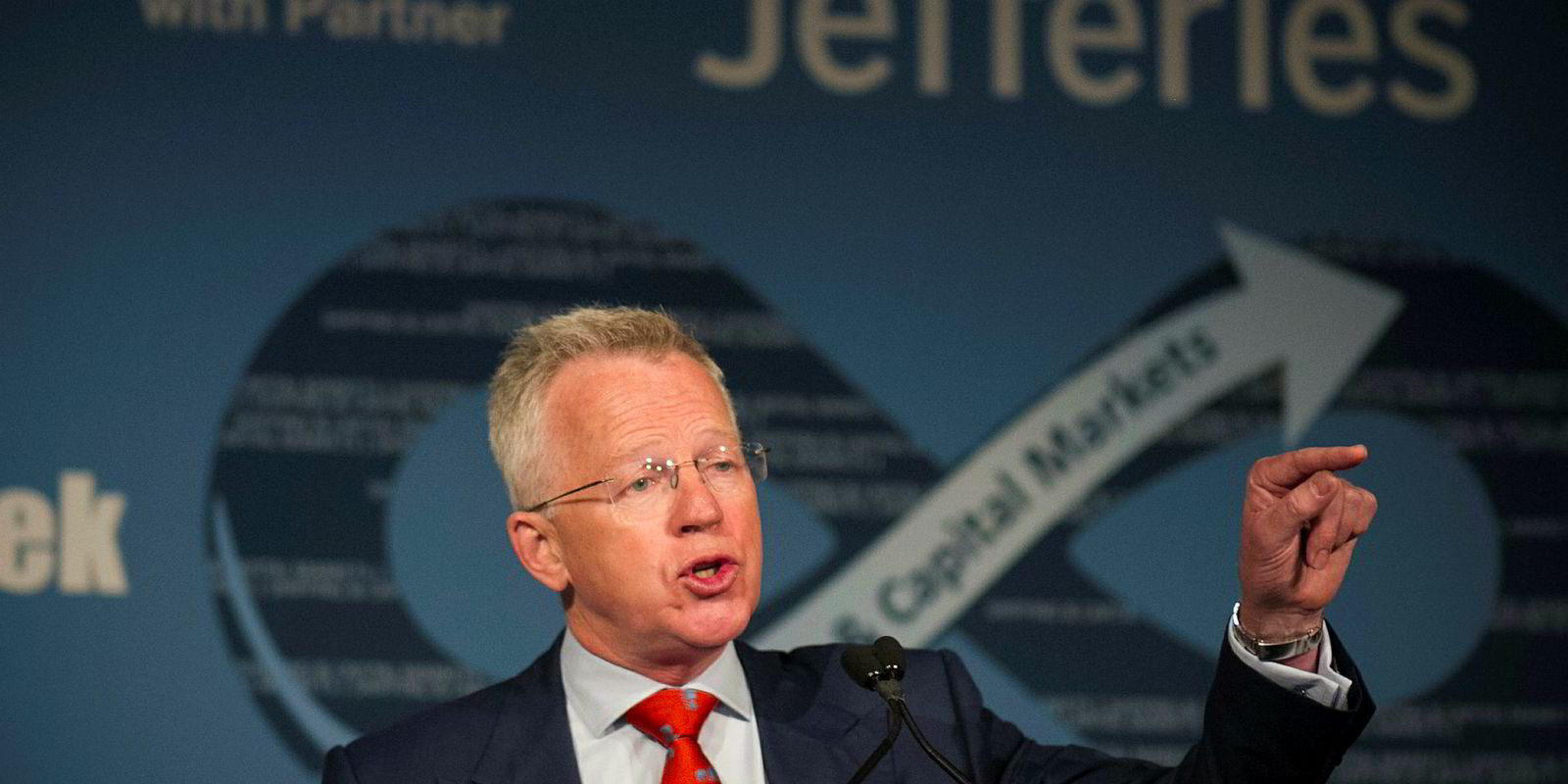Consolidation in the big tanker market will help shipowners reclaim the initiative from charterers and strengthen their hand in weaker markets, says Frontline Management chief executive Robert Hvide Macleod.
His comments came as the executive suggested a recovery in the crude market could begin in 2018 with the tipping point arriving in the second half fuelled by higher scrapping activity.
Macleod, speaking after Frontline reported a weak third quarter result today, said: "It is evident that the VLCC market would benefit from consolidation. The fleet has never been larger.
“Ultimately, the fleet sits in too many hands and provides charterers the upper hand in periods of market weakness where small owners are often price takers.”
Macleod believes incoming environmental regulation could help drive consolidation in the sector.
“Some owners will not be effective in the current down-cycle and may exit the industry ahead of the implementation of environmental mandates,” he said.
“Consolidation in the tanker market has been discussed for quite some time. The combination of the current market environment, the limited financing options and environmental regulations may provide a catalyst. This would be positive for tanker values.”
Peer review
Frontline reported a loss of $25m in the quarter, beyond the $21m loss consensus among analysts.
Core operating profit of $29m missed the Bloomberg consensus by 23%, according to analysts at DNB Markets.
Frontline deliberately left VLCCs idling rather than accept voyages at half of opex levels amid the belief rates would turn up in the second half of the period.
While Macleod admits the winter market arrived later than he thought, he stuck by the strategic decision.

Analysts at Clarksons Platou Securities note the $13,200 per day spot VLCC earnings reported by Frontline for the quarter was below the $16,000 to $19,000 per day range reported by peers.
The decision to let seven VLCCs wait for between two and four weeks also rolled over into the fourth quarter guidance.
Analysts at DNB Markets note Frontline’s fourth quarter VLCC spot guidance is 20% below the peer group, which could widen further as the quarter develops.
On the call, Macleod notes that the company has historically outperformed peers in the market.
Clarksons analysts Herman Hildan and Frode Morkedal confirm this. Tracking data back to 2007 against major peers shows the company to have a 12% out performance, equal to $2,500 per day.
“Although the strategy failed in 3Q17, the company’s practice of actively waiting for improved rates has paid off historically,” Hildan and Morkedal said.
Perfect time to scrap
Frontline attributed the present market weakness to fleet growth at a time when demand is strong.
Macleod believes the present market coupled with a 50% spike in demolition prices has created the “perfect catalyst for scrapping”.
“We believe the market will begin to tighten in 2018 as vessels begin to be retired from the global fleet and oil demand continues to grow,” Macleod said.
While 20% of the VLCC fleet are identified as scrapping candidates, the present orderbook sits at 13% of the trading fleet, making it "easy to see how supply dynamics can quickly change”.
“Scrapping is now finally a real alternative. The spread between a 15-year-old vessel and scrap is at a historical low point,” Macleod said.
'It's where the biggest gamblers play'
“The market environment should, based on accelerated scrapping activity, see improvement in the second half of 2018 – perhaps sooner if the pace of scrapping increases faster than we expect.”
A further positive Macleod identifies is a slowdown in ordering after a number of VLCCs for 2018 and 2019 delivery were booked earlier this year.
“What is very positive for the tankers is we have seen other segments enjoy better times and orders being placed,” he said.
“In a weak market it's often the tankers that are placed first - it’s there where the biggest gamblers play – so there will be orders but I do expect it to slow and I expect other sectors will help us there.”






